Solar panels are generally a good, worthwhile investment for many people. However, there are certain situations in which investing in solar panels wouldn’t be a wise choice. Because there are so many questions that come up when people wonder if solar panels are a good investment, we’re going to answer in detail all of your potential questions.
When Rooftop Solar Panels are Worth It
Let’s start with a quick list of some of the criteria you’d want to meet when deciding if solar panels are worthwhile for you to buy. If any of the following points ring true for you, then you probably could benefit from a solar panel installation.
You Find a Solar Panel System for an Unbeatable Price
Solar panel systems are expensive; there’s no way around it. The average rooftop solar panel system in 2023 produces about 10 kW, with an purchase and installation cost of around $20,000.
However, there are exceptional deals out there, as well as lots of good financing options. Do your homework on this one and find a reputable installer who offers good prices and good warranties. The Energy Sage Marketplace is a great place to research the various solar systems and their respective costs.
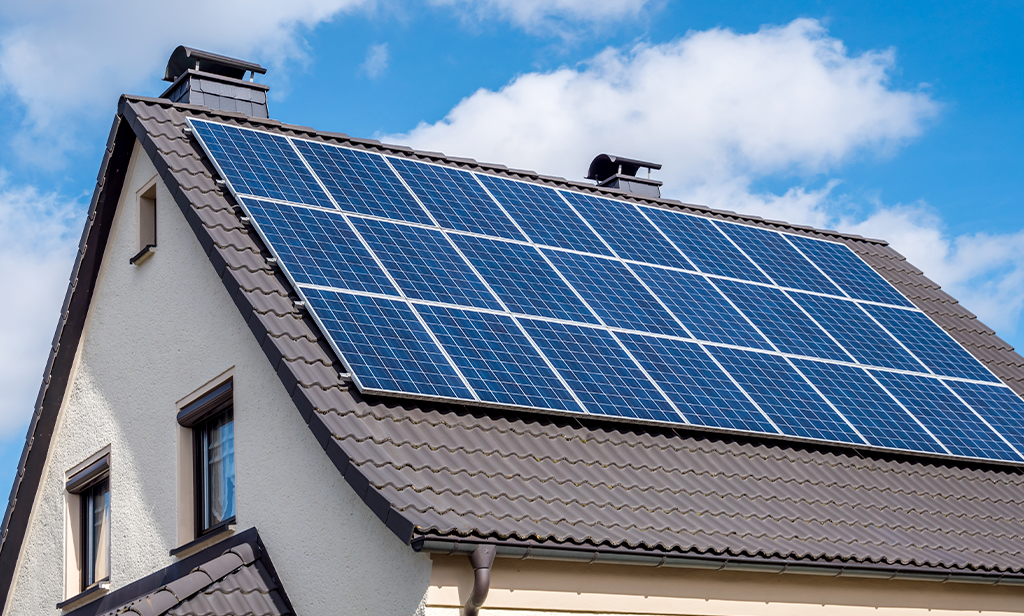
You’re a Home/Property Owner
Owning your own property means you have full responsibility when it comes to paying your utility bills. It also means you don’t have to consult anyone prior to installing a rooftop solar panel system.
Your Electricity Bills are Through the Roof
The rising cost of electricity is hitting people hard. The prices keep going up, regardless of whether or not your personal usage is also increasing, staying steady, or even decreasing. Solar panels can be really beneficial in this instance because the higher your electric bill, the faster your solar system will pay itself off. You could see them paid off in as few as 7 years.
When Rooftop Solar Might Not Be Worth It
Although solar power is a viable and great way of creating and using energy, it isn’t for everyone. Here are some of the main deterrents when considering solar.
Your Current Electric Bill is Already Low
Solar panels harness the sun’s free energy. Although the process itself is free, the purchase and installation cost of solar panels is high. They do pay for themselves relatively quickly when you’ve got a huge electric bill because the solar system will offset that cost.
However, if your monthly electric bill is already low, it could take a really long time for the solar panels to pay themselves off. In that case it probably won’t be worth it to purchase an expensive system.
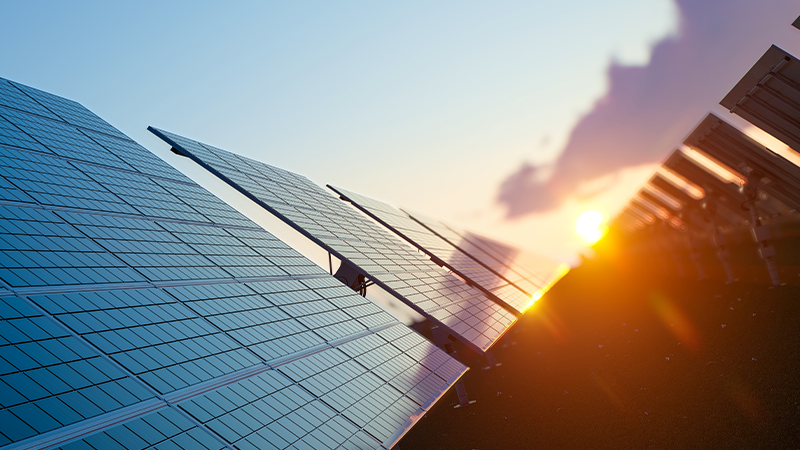
Your Solar System Quote is Outrageously High
The average purchase and installation cost for a rooftop solar system is around $20,000, so if you’re getting quotes for significantly more, you should be cautious and probably opt not to go solar.
You Don’t Own Your Home/Business
If you’re a renter, it won’t make sense to purchase a solar system for a home that’s not yours. Similarly, if you live in an apartment, it wouldn’t make any sense to install a solar panel system on top of your apartment building.
Community solar is a great option in these cases, because the solar panels aren’t installed on your property. Instead, they’re in a central location that then sends the generated solar energy to everyone in the community.
The Savings You’ll Get With Solar
Not only is solar an investment in the environment, it’s also a big financial investment. As with any big investment, one of the first questions potential customers have is “how much will this investment save me in the long term? And how long will it take until I’ve paid myself back?”
On average, your rooftop solar system can bring you savings somewhere between $10,000 – $30,000 over the course of the panels’ lifespan. That’s no small sum. This means that in general, homeowners can expect to pay themselves back for their system back (or break even) after around 9 years.
You can get a more accurate picture of your own personal savings by asking yourself some specific questions.
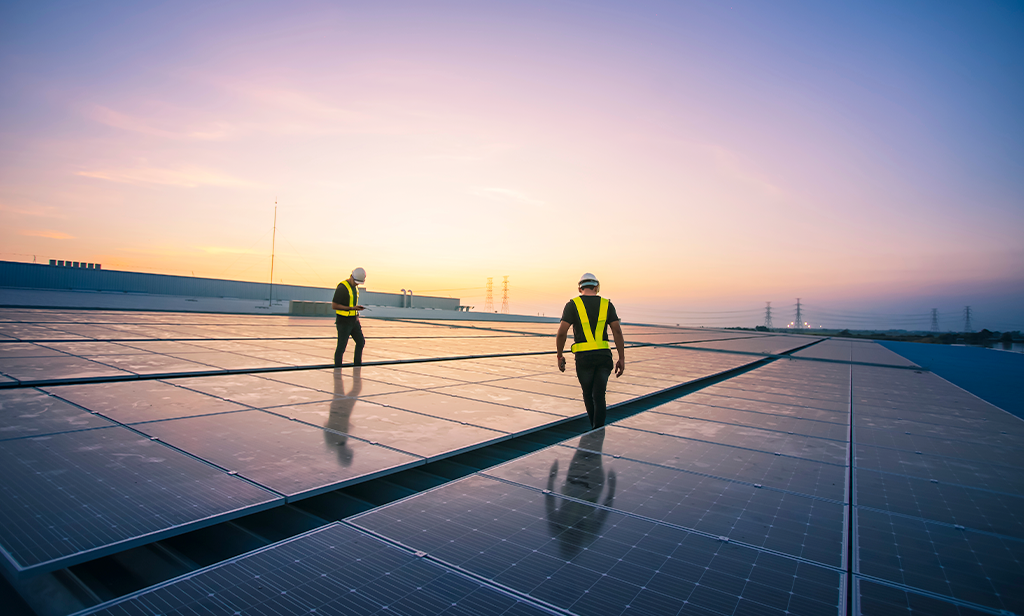
What You’re Paying for Electricity
This is one of the biggest deciding factors in determining if going solar will end up saving you money. Take a look at your monthly electric bills and figure out how much electricity you’re using each month, and the exact amount you’re paying.
Although electricity rates vary hugely depending on where in the country you live, the way that the utility companies charge is the same. You’re billed for every kilowatt-hour (kWh) of energy that your home consumes.
It’s worth going into a bit more depth on the regional differences in cost of electricity. For example, you can expect to pay higher rates in a colder part of the country (like the northeast), than you would in a warmer climate such as the south. These rates can vary from 12 cents per kWh all the way to 20 cents or more per kWh.
Having a rooftop solar system will effectively reduce, if not completely eliminate, your monthly electric bills. The time it takes for that to happen will depend in large part on what you’re already paying for electricity. Check out this solar calculator to get a personalized estimate of your potential savings in Virginia Beach.
What Can I Expect to Pay for My Solar Panels?
This is a big question without a one-size-fits-all answer. The purchase and installation cost of a rooftop solar energy system will vary greatly, so you’ll want to make sure you look into all of these factors thoroughly. If you want even more in-depth information on all of these factors, check out our full length article: “How Much Do Solar Panels Cost And Are They Worth It?” to learn more on the types of solar panels, their cost, overall worth, etc.!
Where You Live
Like we mentioned above, the region you live in dictates in large part how much you’ll pay for standard electricity. You’ll typically pay less in a warmer climate, and more in a colder climate.
The purchase and installation price of rooftop solar energy systems also varies depending upon where you live. Something to consider is that the warmer your climate, the more likely it will be that you’ll need a larger solar panel system.
Home Orientation & Type of Roof
Some homes and roofsare perfectly set up for a solar panel system. For example, if your roof faces south and sits on an angle around 30 degrees, this means you’ll have maximum sun exposure, thus allowing your solar panels to harness and create more electricity.
Even if you don’t have the ideal setup for solar panels, you shouldn’t be deterred. Solar panels can be set up on just about any type of roof. You might have to pay a bit more if the installation is tricky, or if you need higher efficiency panels.
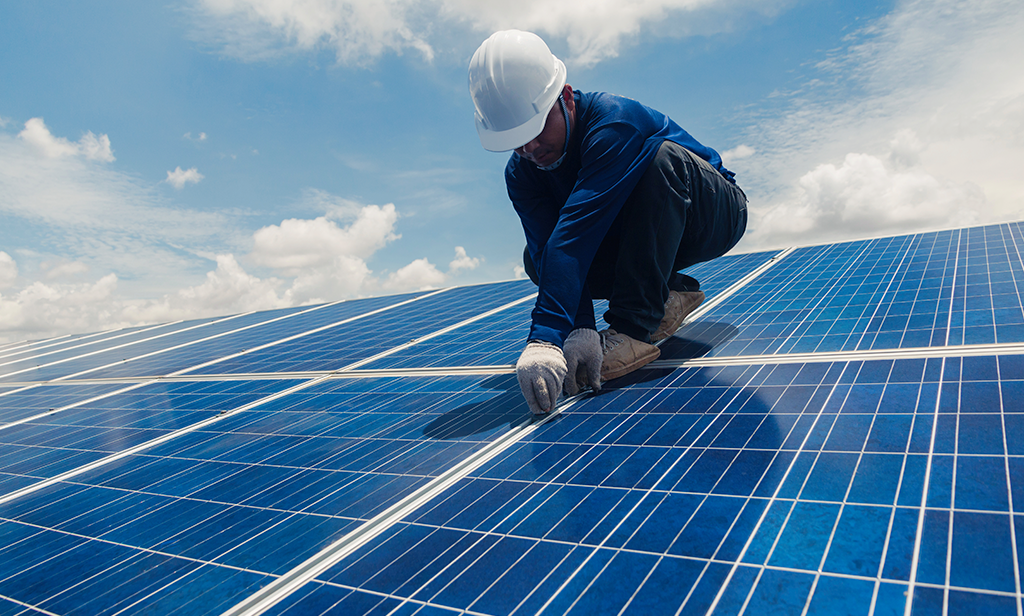
What Size Solar System Will I Need?
This is highly individualized, as each home will need more or less energy. This can depend on how many people are living there, what kind of devices are being used, etc.
Simply put, the more electricity your home consumes, the greater number of solar panels, and thus a larger overall solar system, will be needed. The less electricity you use, the fewer number of panels will be needed, therefore a smaller overall system.
The larger the system, the higher the cost; the smaller the system, the lower the cost.
The Equipment You Choose Impacts Cost
The less well made the solar panels, the cheaper they’ll be. While this lower initial cost can be inviting, it usually doesn’t work out well in the long run. This is because poorly made equipment will usually break down faster, or at the very least, need to be replaced much sooner than its better made counterparts.
Think about it in terms of the savings you’ll experience over time. If you make a larger initial investment into high quality solar equipment, your solar system will be more reliable, and will produce energy for longer. Both of those mean that your return on investment will be better.
Your Solar System’s Installer is Key
There are a lot of companies out there who sell and install solar panels. While they might sell the identical solar panels, the skill level of the installers is what really counts. The more experienced and highly trained the installers are greatly reduces the potential for costly mistakes during the installation process.
Different companies also offer different kinds of warranties, so that’s another area where you’ll want to spend some time on research.
Incentives & Rebates for Going Solar
There are lots of incentives and rebates offered to people who choose to go solar. These can help you get pretty big long-term savings just for going solar, as well as actually reducing the initial cost of your solar system.
Some of the incentives and rebates are available as exemptions on the sales tax for the purchase of your solar system, as well as exemptions on your property taxes. That one is important because simply by installing solar panels on your home, you’re increasing its value, which means your property taxes will increase.
Other ways you can save money from going solar will show up in the form of tax credits from the state, actual cash rebates, performance-based incentives (PBIs), as well as SRECs (solar renewable energy certificates).
One of the best solar incentives available is the ITC, or investment tax credit, and is offered by the federal government. You’re allowed to deduct from your federal income taxes 30% of the price of your solar system and installation. However, your tax rate will also determine whether or not you can take advantage of this credit.
In 2023, the federal solar tax credit can even include your solar battery, and since solar batteries are very expensive, this is a great perk!

Net Metering
While net metering is classified as a form of solar incentive, it deserves its own section because it’s a little more complex. We’ll give a condensed explanation of net metering here, but if you want to do more reading on it, check out our full length, in-depth article on net metering.
An important point to note first is that net metering isn’t offered in all of the states, so you’ll want to do some research to see if your state has it. The Database of State Incentives for Renewables and Efficiency (DSIRE ®) is a good source that keeps track of net metering and various other policies in each state.
Your solar panels are capable of harnessing and producing a lot more electricity than you can use. So what do you do with all this excess?
Something important to note is that net metering only works when your solar system is grid-tied, meaning that while you have a solar energy system, you’re also still connected to the power grid.
Net metering allows you to store the excess energy in the power grid for use at a later date. This allows you to enormously reduce or even totally eliminate your monthly electric bill. You can also get credits on your electric bill because you’re essentially “giving back” to the grid.
Paying for Your Rooftop Solar System
You have plenty of options for how you get your rooftop solar system. You can purchase it outright; you can lease your solar panels; or you can take out a solar loan. Other options include solar leases or power purchase agreements (PPAs).
Buying your solar system with cash is undoubtedly the best way to save the most money in the long term, and will also give you the fastest return on your investment. This option isn’t available to many people, though, and that’s where the other options come in.
Leasing your solar panels is the next best option, because it still affords you a fairly quick turnaround on making your money back. Solar loans are usually zero-down, making it appealing because you don’t have to give up any money up front. While you’ll have to pay the loan back, your savings will still be significant.
Solar leases and power purchase agreements are appealing because again, they’re zero money down, as well as coming with nice perks such as free maintenance. However, your overall savings won’t be very big, so it would take a long time for your system to pay itself off, and might not even do so at all.
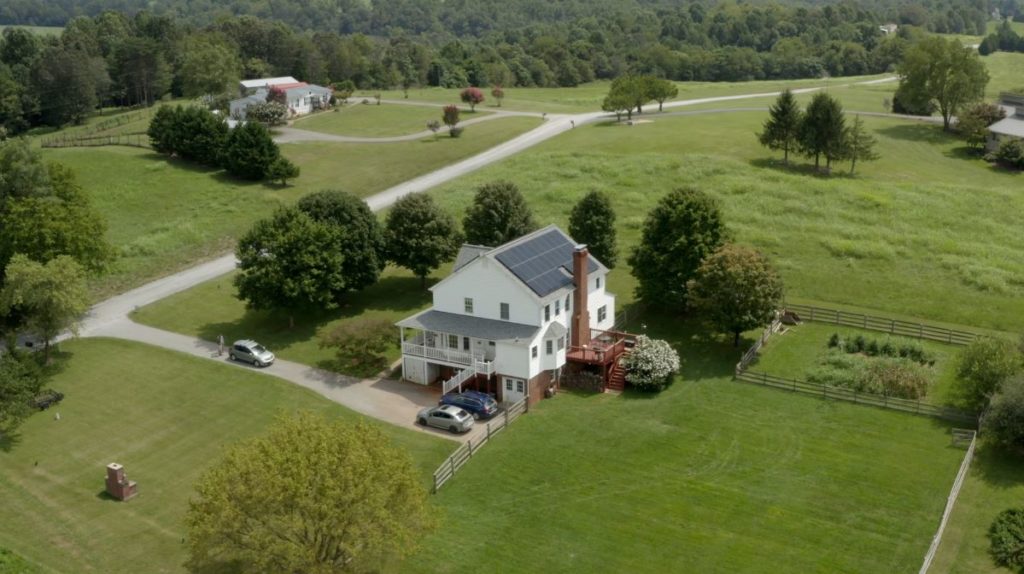
Selling vs. Keeping Your Home
This is an important consideration in deciding if solar is a worthwhile investment in 2023. A rooftop solar energy system is a long-term investment. What this means is that while it will definitely pay itself off, it won’t happen overnight.
So how does this relate to home ownership? If you’re planning on staying in your house for a long time (ten or more years), that will give your solar system time to pay itself off and start paying for itself. If you’re planning on selling your home shortly, you might not want to put such a large amount of money into a place you won’t be staying in.
However, on the flip side, a home with a rooftop solar system can sell for 4.1% more than its identical counterpart without a rooftop solar system.
If you choose to lease your solar system, you’ll want to remember that these leases are long term and very hard to cancel. These issues can contribute to difficulty when it comes to selling your house.
Your Solar Panel Payback Period is Important
The generally accepted timeframe in which your solar panels will pay for themselves is about ten years. Because a rooftop solar system comes with such a hefty price tag, it can be the thing that tips the scale either in favor going solar or against it.
So, it’s really important that potential customers have a way to accurately estimate the potential payback period of their solar panels. Energy Sage gives a great explanation of the whole concept.
Payback Period Formula
The following formula will give you a way to get a rough estimate on the time period in which your solar panels can potentially pay themselves off:
(gross solar system cost – upfront incentives) / (annual savings + additional state and/or utility incentives) = estimated payoff period
Real Life Example of the Payback Period Formula
Your new solar PV system costs $15,000, and you received a tax credit of $4,500 in addition to a $1,500 rebate from your state. In this case, your gross solar system cost is $15,000, with the upfront incentives totaling $6,000. This means that your combined cost is $9,000.
Now, say that your energy bill is $100 every month, and your solar system produces enough energy to cover your energy needs. Your annual savings is your monthly power bill multiplied by 12 months, meaning in the first year of having solar, you’ll save $1,200 on your electricity bills. Some states and utilities also provide incentives that pay you extra for the solar energy your panels generate, like SRECs or the SMART program in Massachusetts: it’s not uncommon for those incentives to put an additional $600 a year into your pocket beyond your electricity savings, meaning an annual benefit of $1,800.
By dividing your combined cost of $9,600 and your annual benefit of $1,800, you can get a more realistic estimate of your payback period. In this example, that’s right around five years!
Example provided by: Energy Sage: Are solar panels worth it in 2023?
Get the Most Savings from Your Solar Panels
There’s no doubt that going solar – whether fully solar, or even just partially solar – will save you a lot of money. But let’s take a quick look on the three main ways to help you save big.
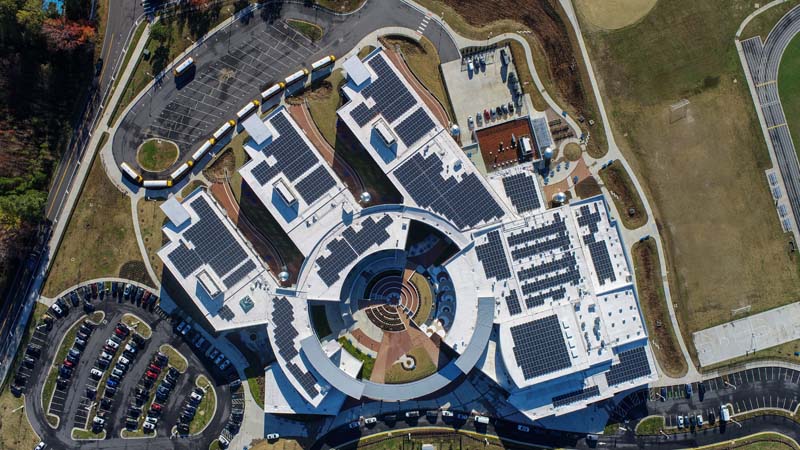
Compare Different Types of Solar Panels & Equipment
When it comes to solar panels and the equipment that comes along with them, the options can seem overwhelming. You’ll again want to do a lot of research to make sure you’re getting the panels and equipment you need.
For example, solar panels have different efficiencies and the ones you choose will be very particular to your specific house and energy needs.
Get Multiple Quotes
As solar gains popularity, the number of solar installation companies increases. This means there’s a lot of competition and it takes thorough research to find the best installer, the best equipment, and the best price to fit your needs.
Look at Local Solar Companies
Inflated pricing is a big problem in the solar panel industry. This is because, although the number of solar panel and equipment manufacturers is increasing quickly, it’s still a relatively small industry. Sometimes the smaller installers actually offer lower, more realistic pricing than their larger counterparts.
